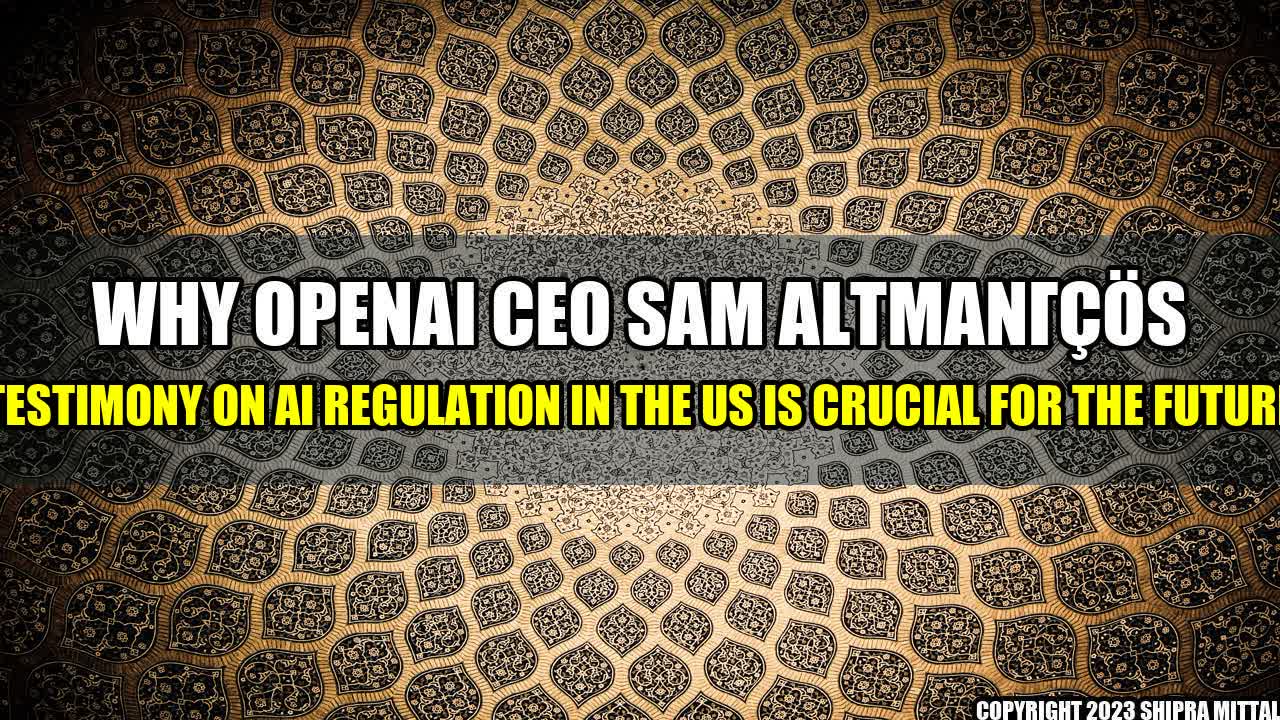It's 2025 and you're sitting on a plane, mid-flight. Suddenly, the pilot passes out, leaving the plane to fly itself. But rather than panic, you breathe a sigh of relief knowing that the AI autopilot system is equipped to handle the situation. It safely lands the plane and you go about your day, never giving a second thought to the technology that saved your life.
This may sound like something straight out of a sci-fi movie, but the truth is, it's not that far-fetched. In fact, it's becoming increasingly likely as AI technology continues to evolve.
The Importance of AI Regulation
As AI technology advances, so does its potential for misuse and unintended consequences. This is why AI regulation is so important. It's crucial to ensure that the technology is being developed and used ethically and safely, to protect individuals and society as a whole.
But how do we regulate something as groundbreaking and fast-moving as AI? This is a question that policymakers around the world are grappling with right now.
Enter Sam Altman
Sam Altman, the CEO of OpenAI, is one of the leading figures in the AI industry. He will be testifying on AI regulation in the US, bringing much-needed expertise and perspective to the conversation.
Altman's testimony is crucial for a number of reasons:
- He has a deep understanding of AI technology and its potential.
- As the CEO of OpenAI, he has firsthand experience in developing and commercializing AI.
- He is committed to ethical and safe AI development, as demonstrated by OpenAI's decision to not sell its technology to certain industries.
Altman's testimony has the potential to shape the conversation around AI regulation in the US, and around the world. His insights and expertise will be invaluable in helping policymakers understand the potential impact of AI, and how it can be regulated in a way that benefits society.
AI technology is already being used in a variety of industries, from healthcare to finance to transportation. Here are a few quantifiable examples:
In healthcare, AI is being used to improve diagnoses and treatment. A recent study found that an AI system was able to diagnose breast cancer with greater accuracy than human doctors.
In finance, AI is being used to prevent fraud and improve risk management. A report by Accenture found that AI could save the financial industry $140 billion in costs by 2025.
In transportation, AI is being used to improve safety and efficiency. Self-driving cars, buses, and trains are all in development and have the potential to dramatically reduce fatalities and congestion.
These examples demonstrate how AI technology has the potential to create significant benefits for society, but also highlight the need for regulation to ensure that the technology is used safely and ethically.
As someone who works in the tech industry, I've seen firsthand how exciting and transformative AI technology can be. But I've also seen how important it is to ensure that the technology is developed and used ethically.
One experience that stands out to me was when I was working on a project that involved facial recognition technology. The technology was incredibly advanced, but I became concerned about the potential for misuse. What if the technology fell into the wrong hands? What if it was used to target specific groups of people?
These concerns led me to research the ethical implications of facial recognition technology, and I ultimately decided to raise my concerns with my team. We ended up significantly modifying the project to ensure that the technology was being developed ethically and with the potential for misuse addressed.
Conclusion
In conclusion, OpenAI CEO Sam Altman's testimony on AI regulation in the US is crucial for the future of AI. His insights and expertise have the potential to shape the conversation around AI regulation, and help policymakers find the right balance between innovation and safety.
Here are three key takeaways:
- AI technology has the potential to transform our society in countless positive ways, but it also has the potential for misuse and unintended consequences.
- Regulating AI technology is incredibly important to ensure that it is being developed and used ethically and safely.
- Experts like Sam Altman have a critical role to play in shaping the conversation around AI regulation, and helping to ensure that AI is developed in a way that benefits society.

Akash Mittal Tech Article
Share on Twitter Share on LinkedIn